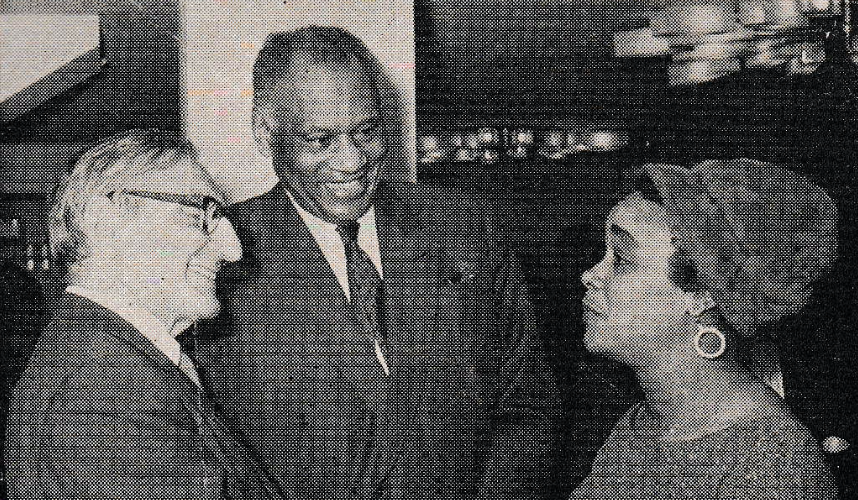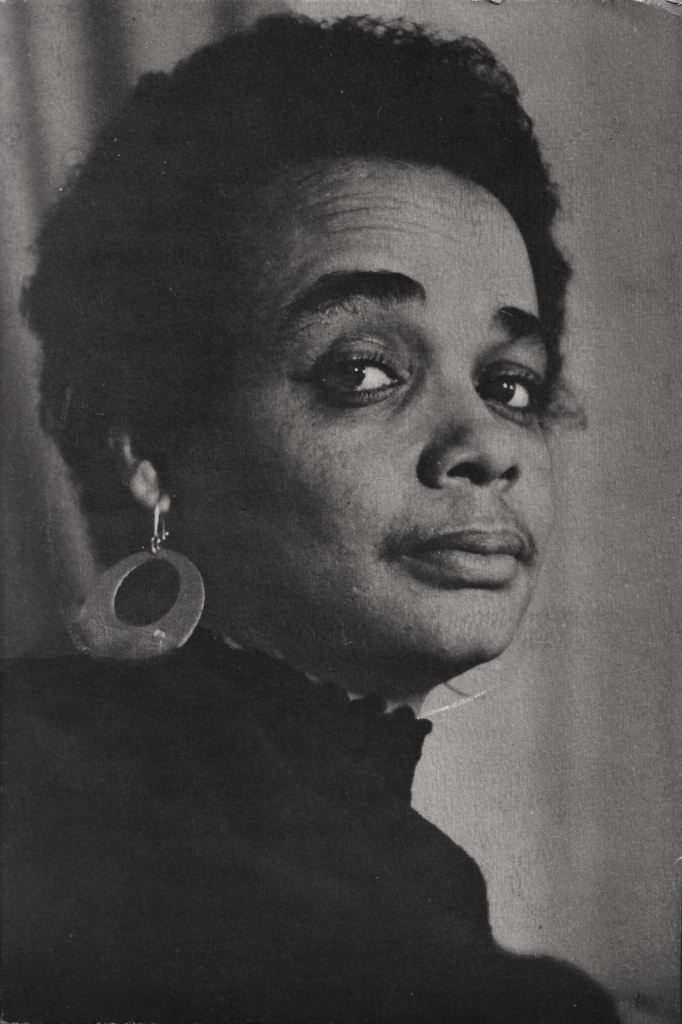-
A Note on Aesthetic Style
Original, handwritten note; undated. Actually, I don’t have a style nor do I believe in that artificiality. I submit myself to the natural and allow the subject to emerge–to fight its way through. The shape in which it emerges is of necessity its own style. I make myself the instrument through which the message flows.…
-
Until They Have Stopped

Dedicated to Paul Robeson, Sr. Until they have stopped glutting me with slop from the kitchen’s garbage to make fat profit of me like a hog, Until they have stopped slitting my throat like a defenseless animal’s in the near-Christmas time killing for the Christmas feast, Until they stop the knife which in my tenderest…
-
Without Music
Originally excerpted in 1972 from the unreleased collection, Why Do I Have Corns On My Feet? This is the way it is without music Stale dishwater—untechnicolored Rich in the recommended calories And the not so recommended grease Whose stagnant inactivity Leaves a ten hour old tidal mark Around the half-emersed pile Of breakfast dishes The…
-
The Culture & Politics of Black Literature – The Heyday of the Real Harlem Writers Guild
I must pay tribute to Grace Killens, who played a vital role in hosting us and holding the Harlem Writers Guild together for the many years that her husband John Oliver Killens presided. She was an immensely nourishing presence. In assessing the work of John Oliver Killens one needs to begin with World War II,…
-
Remembering a Gross Miscarriage of Justice – The Execution of Ethel & Julius Rosenberg

The hurt was deep beyond measure We sat in stunned silence around the table piled up with newspapers filled with dire predictions of the fate descending upon the innocent young parents Ethel and Julius Rosenberg. Found guilty on the perjured and patently absurd testimony of Ethel’s brother of stealing the “secret” of the atomic bomb…
-
Conversation with my daughter – About a star

Originally published in Sarah E. Wright and Lucy Smith’s Give Me a Child (1955) , now out of print. If you’d like to assist/keep up-to-date with efforts to get the book printed again, follow our Substack. “No, honey! That star didn’t just get there, But I am not at all surprised This is your first…
-
Conversation with my son–About flowers

“Child, look for flowersIn our fields; they are there.There is a kind that growsOut of hungering soil,In spite of stiffened earth –In our fields. “There is a kind that teethes on rock,Thrives on the trampled leavings;This is a kind that will not dieUnsunnedIn our fields. “Don’t bother your head with roses!You will not want to…
-
I Went for a Job
Originally submitted and published in multiple papers, including Philly Daily Worker, in 1953. Bookkeeper wanted? There were a lot of ads in the Philadelphia Inquirer, One whole column and a half– I picked out a good one: Bookkeeper, capable of handling complete set of books, small manufacturing concern, young woman, experienced, call between 9-11. Ask…
-
Urgency
Originally published in Sarah E. Wright and Lucy Smith’s Give Me a Child (1955) , now out of print. If you’d like to assist/keep up-to-date with efforts to get the book printed again, follow our Substack. This moment is precious: The car has stopped. Thank God for red lights And seats enough this morning. Oh…

Sarah E. Wright was a poet, novelist, and an inspiration to radical black writers. Born in Maryland in 1928, Sarah paved the road for many of her contemporaries & future writers through her incredible depictions of the black experience in America. As vice-president of the Harlem Writer’s Guild, Sarah acted as a leading force to her peers, helping guide them through their most active & important period. Her novel, This Child’s Gonna Live (1969) serves as the starkest & most honest depiction of the Reconstruction-era black experience, and just how little has changed.
In appreciation of a gifted wordsmith & great mind, Sarah E. Wright’s work will be archived & preserved here.
